Vallabhbhai Patel (1875-1950) – Letter - a letter, handwritten in Gujerati which mentions Gandhi (Bapu). Written whilst Patel was imprisoned in Yeravda Central Jail: Parawada Temple Date: 10.05.33 Dear Sister, There are no news from your side since a long time. How are you both? Did Jitu get passed in his exams? And currently what he is doing? And where is he? Is he getting holidays or not? And what are the news about Sukhiya and Hansa? How are you feeling with only one eye? Bapu went out leaving us but kept us in very much worry. These twenty one days are going to be like twenty one incarnations. Mahadev will also go in a few days. But he will be engaged in the service to Bapu. So for some time he will stay in Pune only. So after that we will be left alone. Maniben is well. She has got her friend so now her days will be passed fast. Please write me where Chandubhai has been kept if you know it. Doctor was saying that you will have to suffer the pain of nose but I do not have such a hurry, so it is not to worry. So now let us see what happens. Will do something after few days. The health is good in other ways. I hope you all are well. Please read the letter along this to Balubhai. Sincerely, Vallabhbhai’s salutation Stamped to top 'Superintendent - Yeravda Central Jail (Poona)' with an official's signature in red. Written in black ink to both sides of paper. Some tears, area of loss to the centre, some staining and generally in a fragile but stable state. 17cm x 10cm, approx. Upon the failure of the Round Table Conference in London, Gandhi and Patel were arrested in January 1932 when the struggle re-opened, and imprisoned in the Yeravda Central Jail. During this term of imprisonment, Patel and Gandhi grew close to each other, and the two developed a close bond of affection, trust, and frankness. Their mutual relationship could be described as that of an elder brother (Gandhi) and his younger brother (Patel). Despite having arguments with Gandhi, Patel respected his instincts and leadership. In prison, the two discussed national and social issues, read Hindu epics, and cracked jokes. Gandhi taught Patel Sanskrit. Gandhi's secretary, Mahadev Desai, kept detailed records of conversations between Gandhi and Patel. When Gandhi embarked on a fast-unto-death protesting the separate electorates allocated for untouchables, Patel looked after Gandhi closely and himself refrained from partaking of food. Patel was later moved to a jail in Nasik, and refused a British offer for a brief release to attend the cremation of his brother Vithalbhai, who had died in October 1933. He was finally released in July 1934 Vallabhbhai Jhaverbhai Patel (31 October 1875 – 15 December 1950), endeared as Sardar, was an Indian statesman. He served as the first Deputy Prime Minister of India from 1947 to 1950. He was a barrister and a senior leader of the Indian National Congress, who played a leading role in the country's struggle for independence, guiding its integration into a united, independent nation. He was one of the conservative members of the Indian National Congress. In India and elsewhere, he was often called Sardar, meaning "chief" in Hindi, Urdu, and Persian. He acted as the Home Minister during the political integration of India and the Indo-Pakistani War of 1947. One of Mahatma Gandhi's earliest political lieutenants, he organised peasants from Kheda, Borsad, and Bardoli in Gujarat in non-violent civil disobedience against the British Raj, becoming one of the most influential leaders in Gujarat. He was appointed as the 49th President of Indian National Congress, organising the party for elections in 1934 and 1937 while promoting the Quit India Movement.
Vallabhbhai Patel (1875-1950) – Letter - a letter, handwritten in Gujerati which mentions Gandhi (Bapu). Written whilst Patel was imprisoned in Yeravda Central Jail: Parawada Temple Date: 10.05.33 Dear Sister, There are no news from your side since a long time. How are you both? Did Jitu get passed in his exams? And currently what he is doing? And where is he? Is he getting holidays or not? And what are the news about Sukhiya and Hansa? How are you feeling with only one eye? Bapu went out leaving us but kept us in very much worry. These twenty one days are going to be like twenty one incarnations. Mahadev will also go in a few days. But he will be engaged in the service to Bapu. So for some time he will stay in Pune only. So after that we will be left alone. Maniben is well. She has got her friend so now her days will be passed fast. Please write me where Chandubhai has been kept if you know it. Doctor was saying that you will have to suffer the pain of nose but I do not have such a hurry, so it is not to worry. So now let us see what happens. Will do something after few days. The health is good in other ways. I hope you all are well. Please read the letter along this to Balubhai. Sincerely, Vallabhbhai’s salutation Stamped to top 'Superintendent - Yeravda Central Jail (Poona)' with an official's signature in red. Written in black ink to both sides of paper. Some tears, area of loss to the centre, some staining and generally in a fragile but stable state. 17cm x 10cm, approx. Upon the failure of the Round Table Conference in London, Gandhi and Patel were arrested in January 1932 when the struggle re-opened, and imprisoned in the Yeravda Central Jail. During this term of imprisonment, Patel and Gandhi grew close to each other, and the two developed a close bond of affection, trust, and frankness. Their mutual relationship could be described as that of an elder brother (Gandhi) and his younger brother (Patel). Despite having arguments with Gandhi, Patel respected his instincts and leadership. In prison, the two discussed national and social issues, read Hindu epics, and cracked jokes. Gandhi taught Patel Sanskrit. Gandhi's secretary, Mahadev Desai, kept detailed records of conversations between Gandhi and Patel. When Gandhi embarked on a fast-unto-death protesting the separate electorates allocated for untouchables, Patel looked after Gandhi closely and himself refrained from partaking of food. Patel was later moved to a jail in Nasik, and refused a British offer for a brief release to attend the cremation of his brother Vithalbhai, who had died in October 1933. He was finally released in July 1934 Vallabhbhai Jhaverbhai Patel (31 October 1875 – 15 December 1950), endeared as Sardar, was an Indian statesman. He served as the first Deputy Prime Minister of India from 1947 to 1950. He was a barrister and a senior leader of the Indian National Congress, who played a leading role in the country's struggle for independence, guiding its integration into a united, independent nation. He was one of the conservative members of the Indian National Congress. In India and elsewhere, he was often called Sardar, meaning "chief" in Hindi, Urdu, and Persian. He acted as the Home Minister during the political integration of India and the Indo-Pakistani War of 1947. One of Mahatma Gandhi's earliest political lieutenants, he organised peasants from Kheda, Borsad, and Bardoli in Gujarat in non-violent civil disobedience against the British Raj, becoming one of the most influential leaders in Gujarat. He was appointed as the 49th President of Indian National Congress, organising the party for elections in 1934 and 1937 while promoting the Quit India Movement.
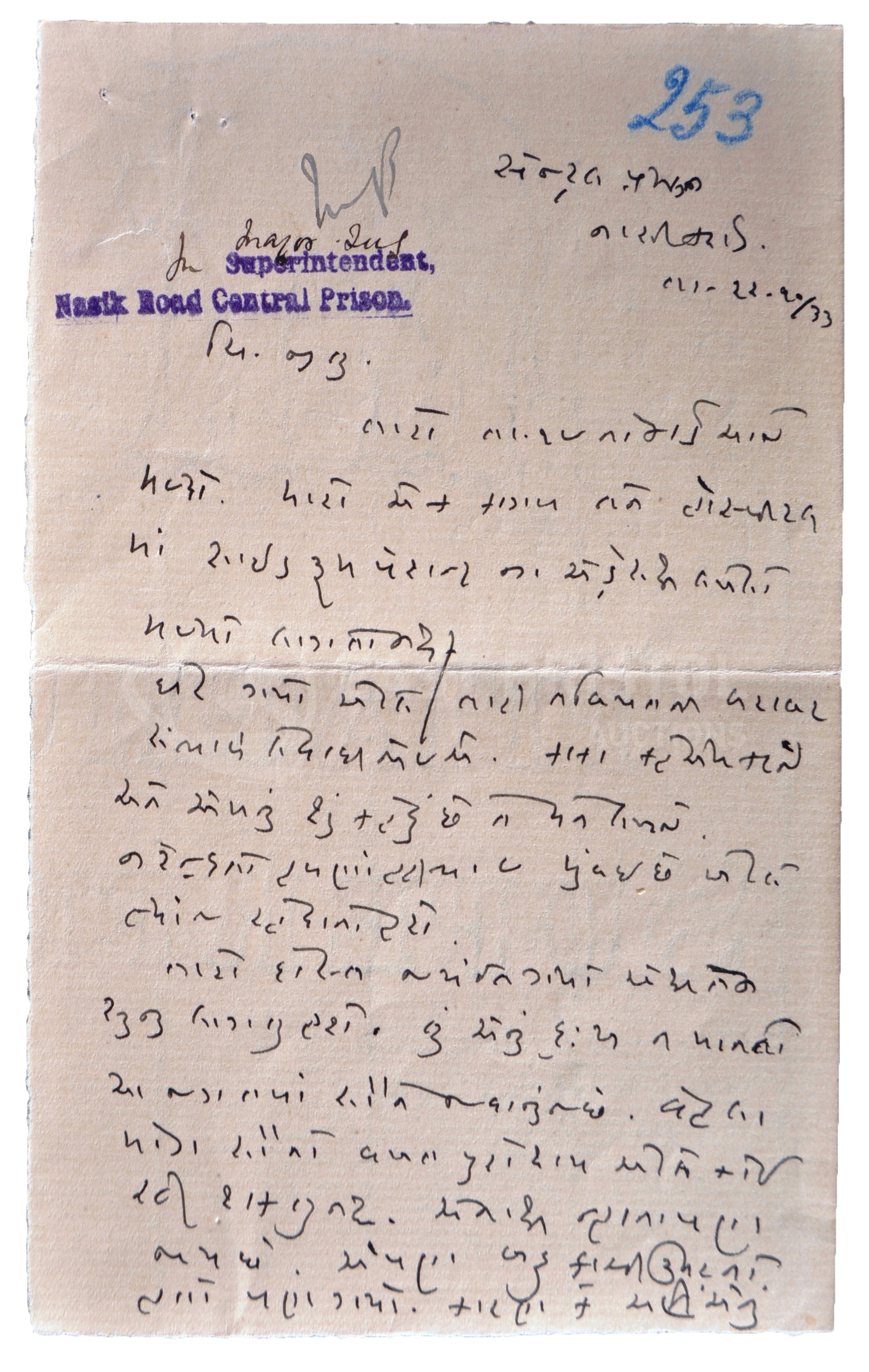

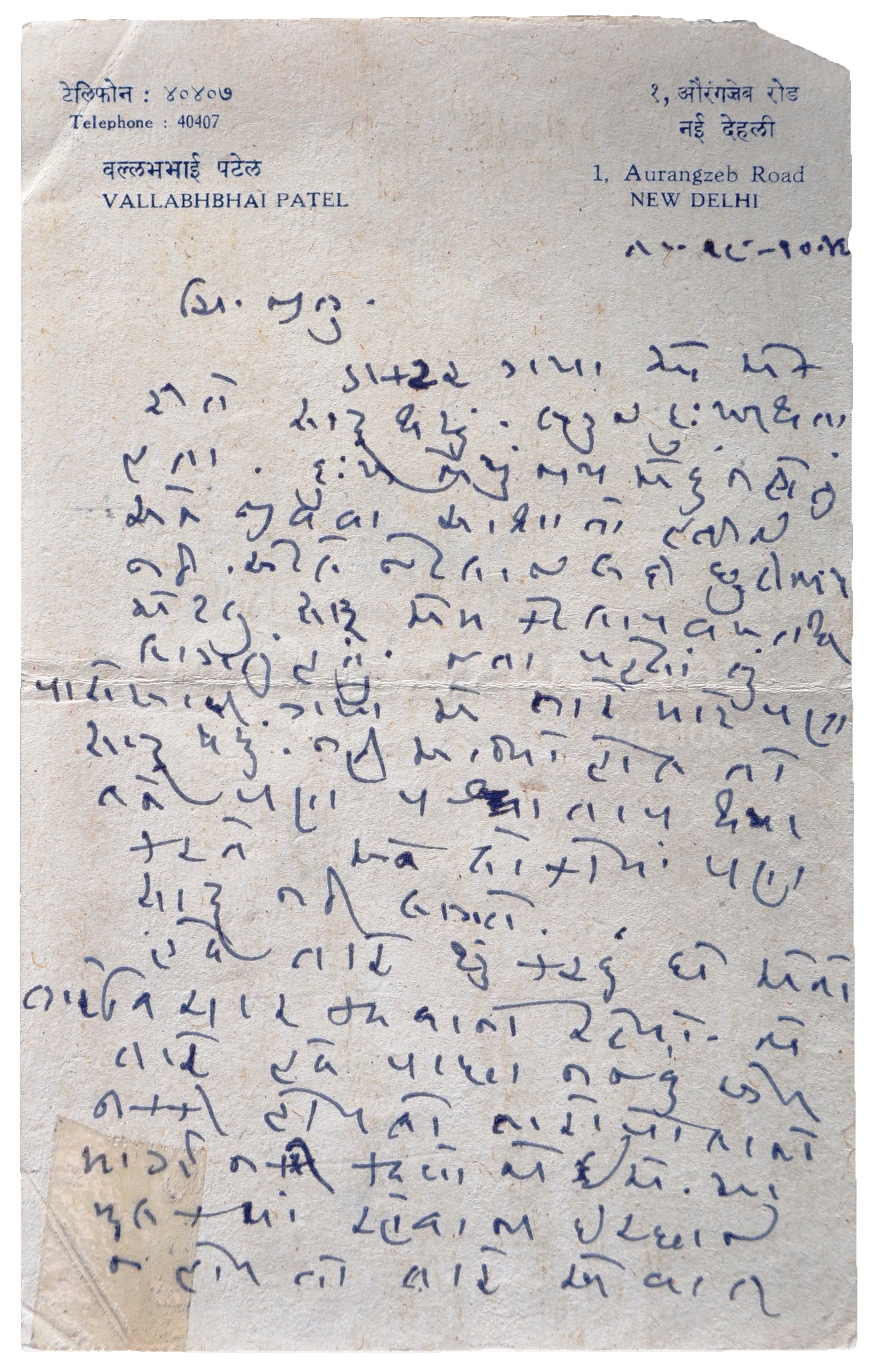

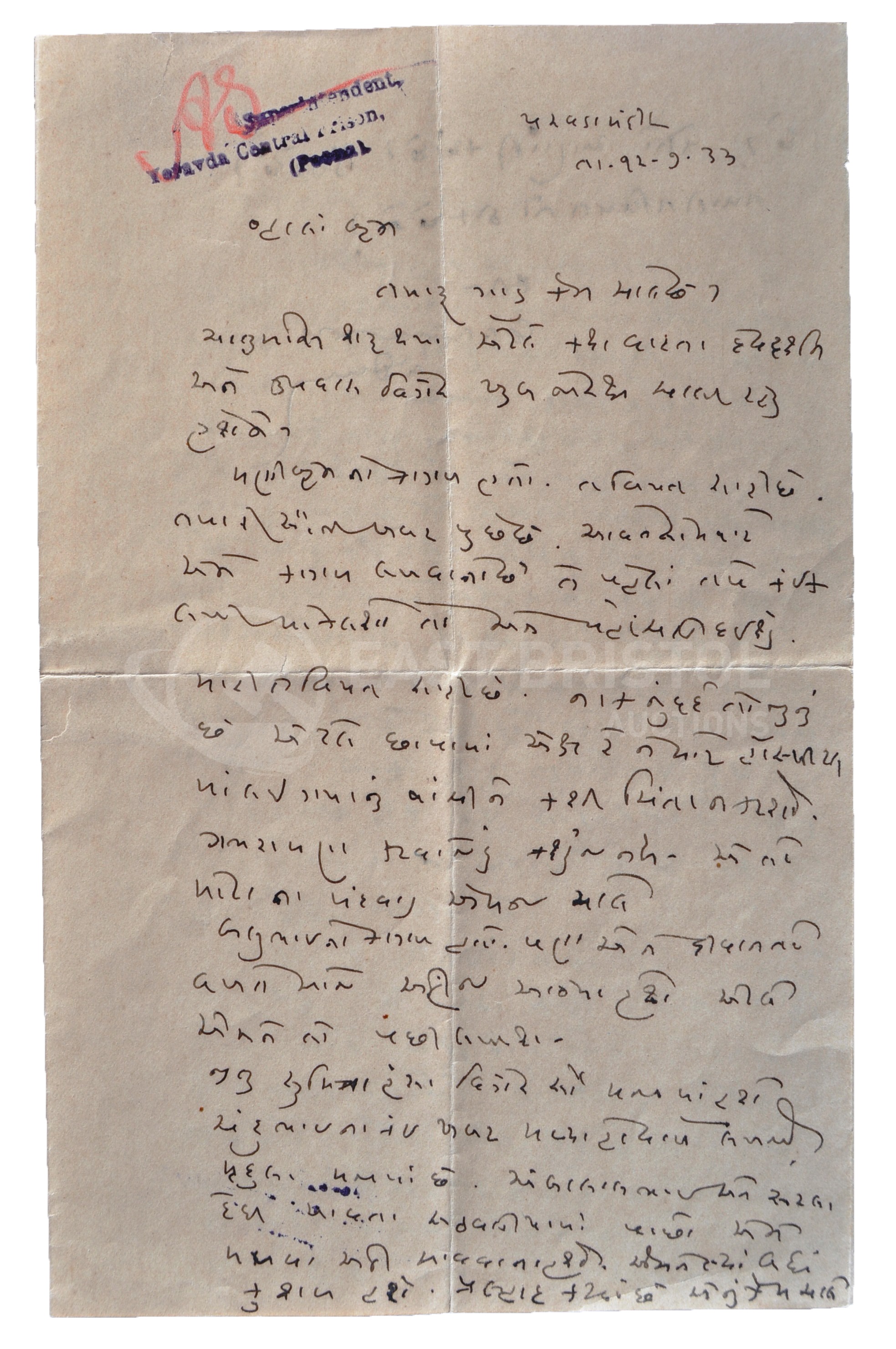

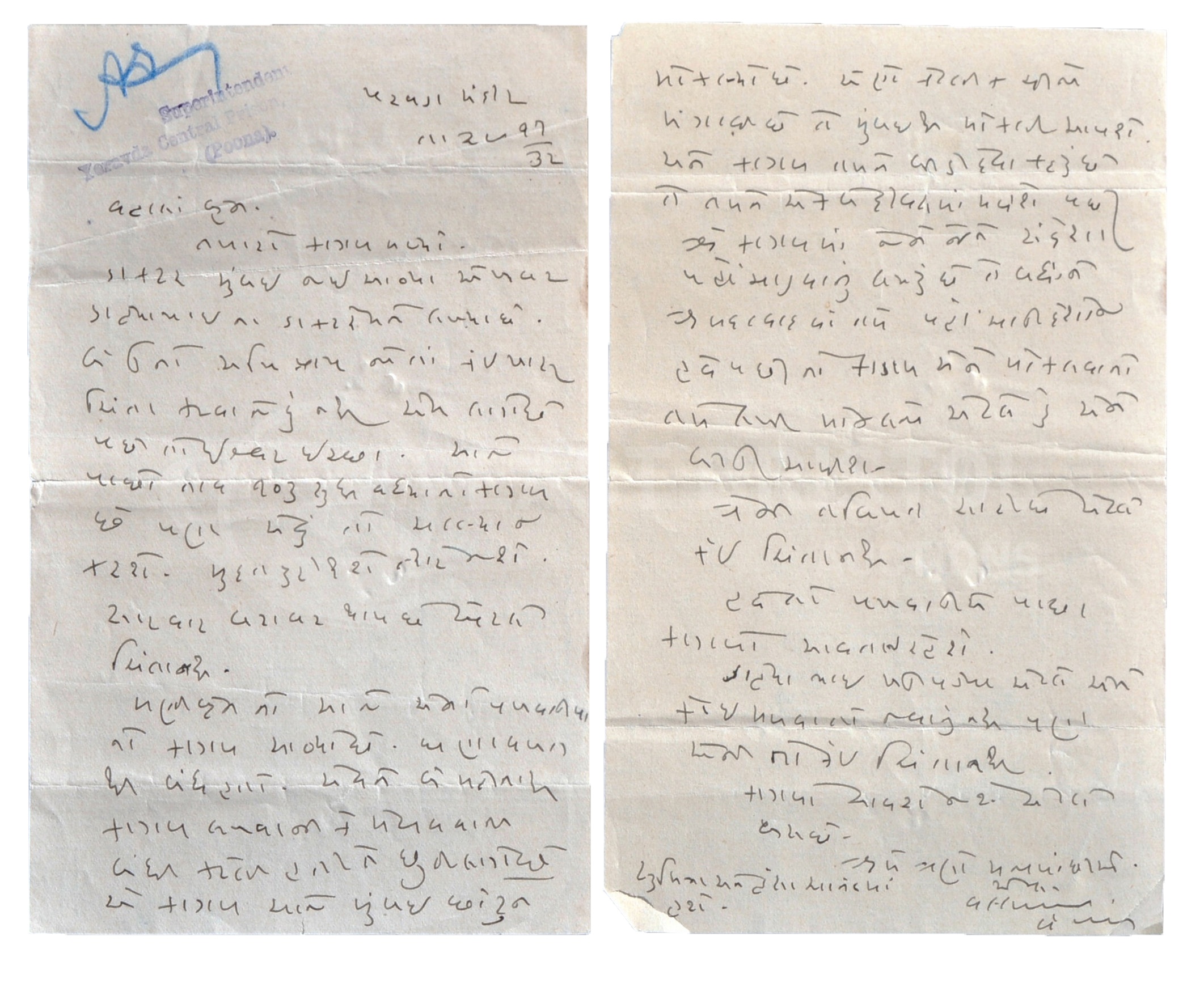


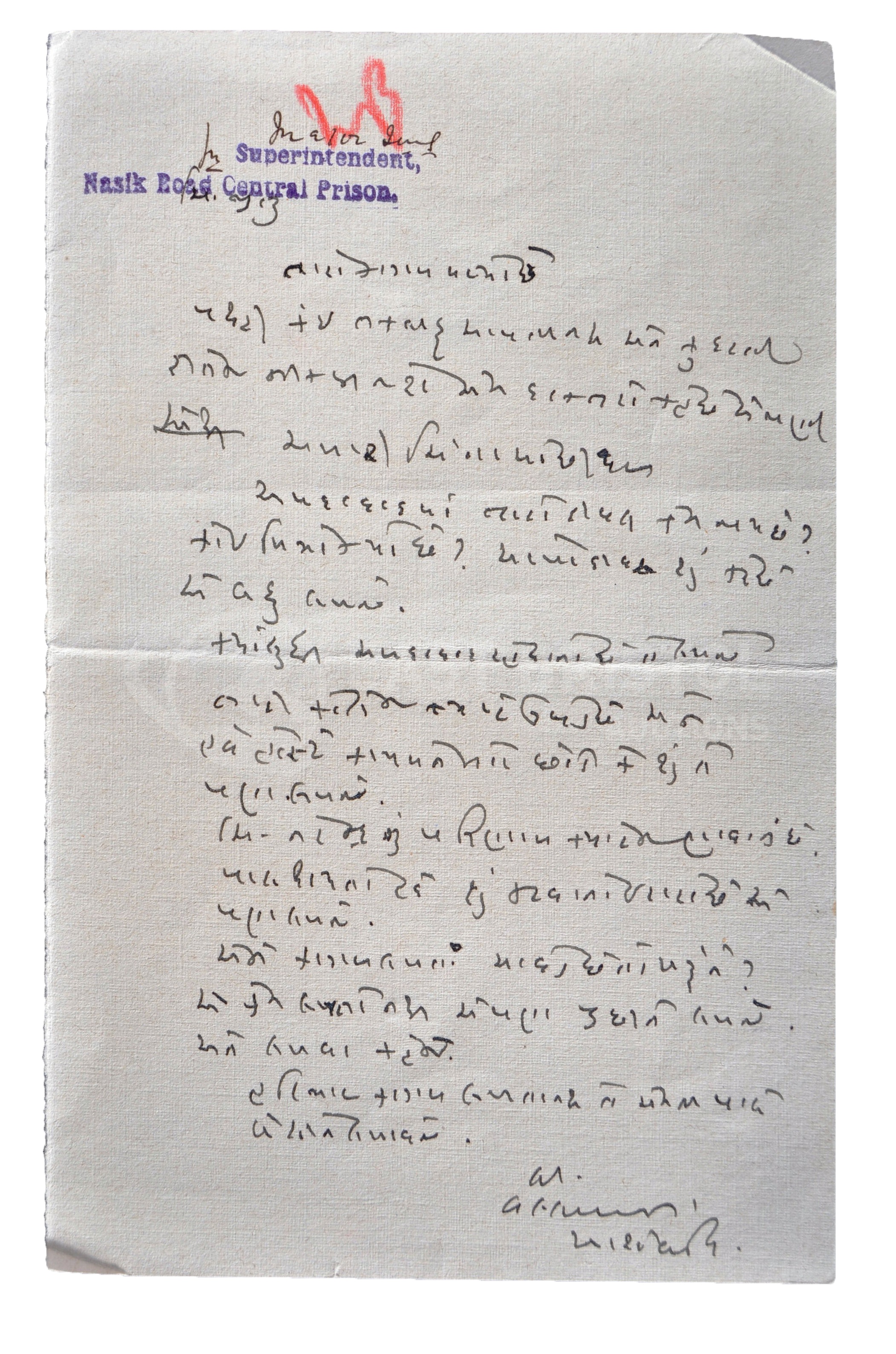
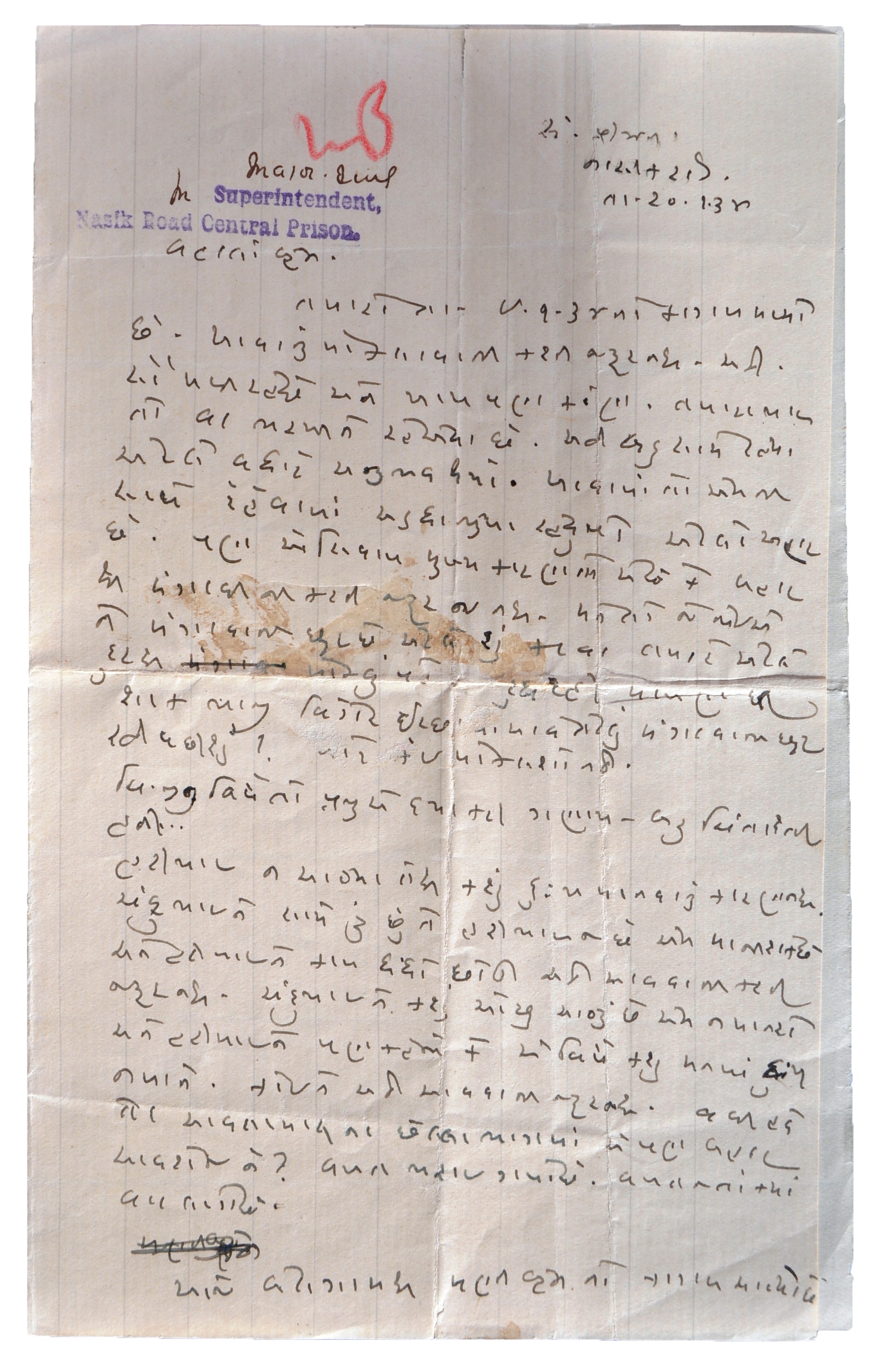



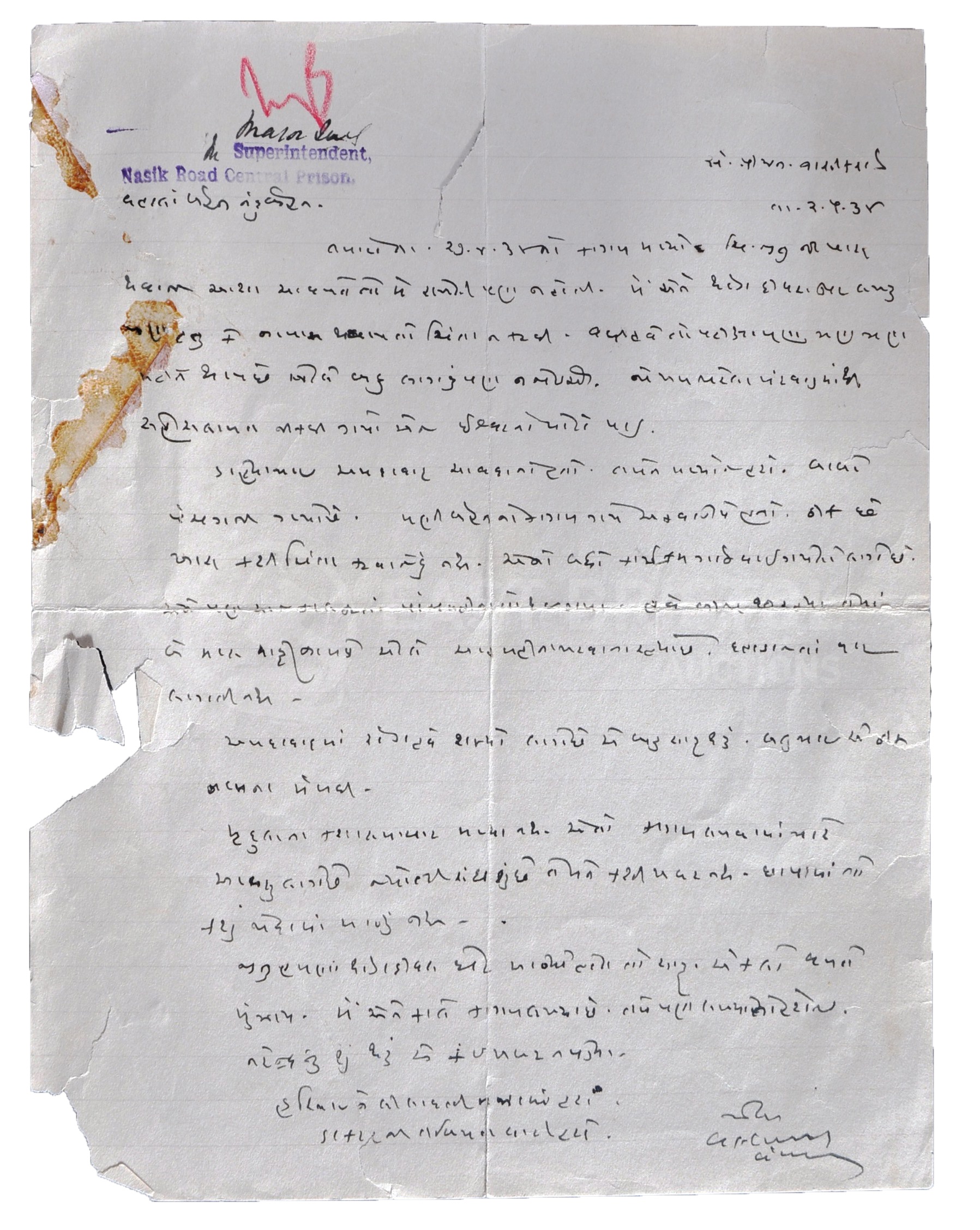
Testen Sie LotSearch und seine Premium-Features 7 Tage - ohne Kosten!
Lassen Sie sich automatisch über neue Objekte in kommenden Auktionen benachrichtigen.
Suchauftrag anlegen